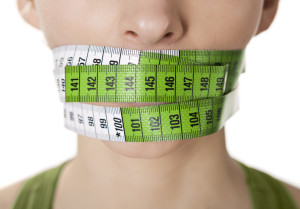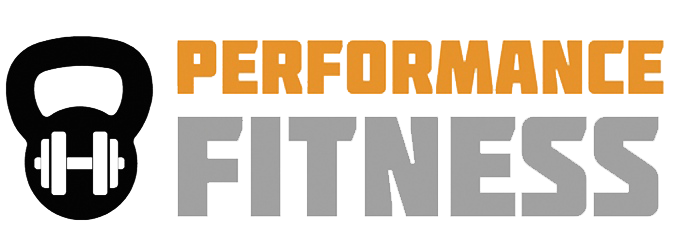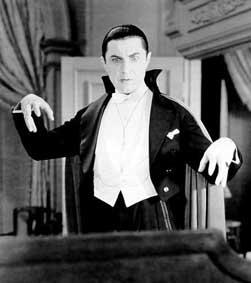Pros and Cons of Calorie Counting
 Topics that create instant controversy: Religion, Politics, Calorie Counting.
Topics that create instant controversy: Religion, Politics, Calorie Counting.
In the world of Weight Loss, there are those that swear by Calorie Counting and those that think it is of the devil. At Performance Fitness, we believe it is only a part of the picture, but perhaps the most crucial part. I’ve written about it before.
But there are valid arguments why Calorie Counting may not be for everyone.
Recently, I was asked to contribute to the blog ProForm.com on this very topic. Several other fitness professionals and bloggers also weighed in. Here’s what we had to say:
Pros & Cons of Calorie Counting – Advice from Top Bloggers
Proform, leaders in the treadmills industry, are interested in much more than just exercising when it comes to health and fitness. We believe that it takes a combination of things in order to stay fit in a world of fast foods, restaurants and unhealthy eating. Our team of experts go out of our way to keep our audience informed on important topics related to fitness and health.
So, we turned to some top bloggers for advice to help you get a clearer perspective on things. We asked these bloggers their takes on the age-old subject of calorie counting. Some people practice calorie counting to ensure that they intake a healthy amount each day. And, when it comes to a healthy amount of calories, too little is just as bad as too many.
Some of the top bloggers below believe that calorie counting helps you make wiser eating choices. On the other hand, some tend to find it to be a serious waste of time. Read on to discover what these health and fitness experts have to say about calorie counting and how it affects your personal wellness, health and overall life.
Pros & Cons of Calorie Counting – Advice from Performance Fitness LLC
Calorie counting is great for some, yet useless to others. Deciding what’s best for you should be based on your own healthy goals… physical health, or psychological health. That’s what I told ProForm when they asked about the impact of calorie counting. Here’s my take on the role it plays in creating a better life:
Do you think that calorie counting has a positive impact on personal health and wellness? Why?
That depends on the person and their approach to calorie counting. In terms of physical health, there are the obviously benefits of weight loss or weight maintenance, but in terms of psychological health and wellness, some people need to avoid counting calories or at least take a break from it.
I find that there are two types of people for whom calorie counting doesn’t work:
1. The Game Show Contestant – This is the person who loves to play the “Beat My Calories” game. In a weight loss scenario, they set their calories in their favorite food tracking app, allowing for the necessary deficit to lose weight, and then try to constantly come in UNDER their deficit. In fact coming in under their calories at days end is a source of pride for this person. Remember that their calories have already been set at a deficit to allow for weight loss, so coming in under this number results in far too few calories being taken in. This person is also constantly starving, and eventually gives up on their plan because their extremely restricted plan is impossible to maintain, and they usually end up feeling like a failure.
2. The Compulsive Counter – This person compulsively tracks every morsel of food to that point that it becomes their second job. They’re constantly thinking about their next meal and meticulously write down every detail of every food that they ingest. This person also ends of being miserable because the task of writing down every detail of every food becomes an all-consuming and overwhelming chore.
Calories are obviously important. Constantly eat in excess of your caloric needs, and you’ll never achieve your fat loss goals or be able to maintain your weight. If a client doesn’t fall into one of the above categories, then I think counting calories sensibly can be a positive exercise. After all, it can be great feedback to inform your food choices throughout the day.
However, I still prefer that clients use their energy to focus on what they eat; choosing minimally processed foods over highly processed items, prioritizing vegetables and proteins, and learning awareness of their food behaviors and overeating triggers. Even journaling without calorie counting can be a helpful exercise, helping to build awareness of portion size and even situations that cause overeating.
Your motto is A Better Body. A Better Life. What advice do you have for those working for a better life? How could calorie counting play into your plan?
1. Take responsibility for where you are now.
2. Forgive yourself for your past and move on.
3. Realize that you can’t fix the past and you really can’t control your future, but you can try to make a better future through the choices (foods, working out on a consistent basis) you make in the present.
4. Determine if you’re truly ready to make a change.
5. Figure out why you’re motivated to make a change.
6. Set your goals and then determine your action plan.
If you can calorie count in a sane way, by all means do it. It can help you to stay on track and reach your health and fitness goals, and create a better life.
Pros & Cons of Calorie Counting – Advice from Skinny Mom
Calorie counting is a hot topic among women who understand that health and beauty can go hand-in-hand. We asked Skinny Mom about calorie counting and the type of impact it has on the health and wellness of these women. Our team also inquired about Skinny Mom’s ideas on how personal health is affected by the calories found in various types of foods.
Do you think that calorie counting has a positive impact on personal health and wellness? Why?
I find that for myself and other busy moms, calorie counting is a tedious task that no one has time for! Keeping track of every calorie consumed and constantly adding them up is a chore that is unsustainable in the long run. This is especially true with busy Moms.
When you think about calorie counting from a common sense standpoint, you’ll realize that all calories are not created equal. Think about it—are 100 calories in M&Ms equal to a 100 calories in blueberries in terms of health and wellness? No–the M&Ms are full of fat, refined sugar, and salt while the blueberries are full of vitamins and minerals.
The reason why people swear by calorie counting is that it gives their day structure. It takes the guesswork out of dieting because you’re able to calculate how much to eat throughout the day. A healthier and more effective method for creating structure within a diet is focusing on carbohydrates, the macronutrient that fuels your body and gives you energy.
Carbohydrates are strategically planned throughout the week to speed up your metabolism and get you lean and toned up fast! This is alongside a strong focus on vegetables, protein, and healthy fats. I like to follow a carb rotation plan and I call it my Power 30 Plan.
I actually used this method as a fitness competitor before I had my son. I’ve now tweaked it for busy Mom’s like myself. It’s structured enough to make you stick to it, but flexible enough to balance cooking for your family and enjoying occasional treats! This is a long term lifestyle that is truly sustainable.
There are so many food categories you cover. What impact do calories coming from varying food types have on personal health?
It’s SO important to get your calories from a variety of food categories because each food has its own benefit to your body. Every food has a unique vitamin and mineral complex and different foods work together for better nutrient absorption and more energy.
What I love about my POWER 30 Carb Rotation Program is that no food group is off limit. This is not one of those diets where you cut out a whole food category. You pretty much can eat everything in moderation making it easy to follow long term.
The tricky part comes with timing and portion control of these different food groups. We want to maximize your energy and boost your metabolism, so choosing when to bring in carbohydrates is important.
Pros & Cons of Calorie Counting – Advice from Treadmill Reviews
Calorie counting works for some. Yet, there are others who consider it to be a major waste of time when it comes to personal health and wellness. We asked Treadmill Reviews how important calorie counting is to a person trying to become and stay physically fit. This top blogger truly believes in combining a healthy diet with working out using treadmills.
Do you think that calorie counting has a positive impact on personal health and wellness? Why?
Focusing on the multiple factors that impact a person’s health will have a ripple effect that will improve the health and wellness of anyone. Each body type has other factors that will impact the way they improve their health and wellness.
For many people calorie counting is a way to keep focused on a balanced diet and make educated healthy food choices that they may have not otherwise. Each person should do the research and decide if calorie counting is the best way to improve their personal health.
What type of treadmill burns the most calories?
A versatile treadmill that offers multiple ways to get the burn going will be the best way to burn the most calories. A treadmill that offers incline training will substantially improve the amount of calories burned during a shorter workout time.
An advanced treadmill that monitors your calories is going to be great, but a treadmill that takes in your age, BMI, weight and height will give you the most accurate calculation of calorie burn.
Pros & Cons of Calorie Counting – Advice from Pilates and Reiki
Calorie counting can turn into an obsession if you’re not careful. It can be a very time consuming process. And, if you’re not careful, you just may lose focus of the desired results… actually losing weight. We asked top blogger Pilates and Reiki for some advice on calorie counting versus Reiki treatments. Here’s what we got in response:
Do you think that calorie counting has a positive impact on personal health and wellness? Why?
I think the answer depends on how you and your brain tend to work. Many people do well counting calories, because the simple act of meal planning and calculating numbers forces them to eat less. So many of us ingest our calories mindlessly, but true calorie counting can only be done mindfully. The trick is cutting back enough to lose weight, but not too much.
That said, calorie counting can make some people over-focus on the numbers, instead of how they feel and how their clothing fits. Again, different personalities and learning styles need different weight loss strategies.
There are health problems that disappear for many with Reiki treatment. Do you think that weight problems can be combated with Reiki treatments rather than counting calories?
Reiki can definitely have a positive effect on weight loss, when combined with a good diet and exercise program. Daily Reiki self-practice, like and mindfulness practice, will help calm you down and keep you relaxed and focused.
It’s amazing, but just 20 minutes of self-Reiki care a day can make it easier to take of yourself better in what you eat and drink. And it also works if you pay someone to do the Reiki treatment for you. But you still have to actually be active in the weight loss, paying attention to what and how you eat and move.
Christina Aguilera recently credited Reiki with assisting her 30 pound weight loss. She stated that three times a week of Reiki treatments helped give her the focus and fortitude to eat healthy and keep the weight off, but she still has to eat healthy. You can’t Reiki away a bad diet!
Pros & Cons of Calorie Counting – Advice from Fitness Is Delicious
Calorie counting was once a very popular trend for people hoping to lose weight and stay physically fit. Many people still use it as a form of doing “balances and checks” when it comes to eating habits. But, top blogger Fitness Is Delicious isn’t a fan of the age-old approach to healthy eating. And, here’s why:
Do you think that calorie counting has a positive impact on personal health and wellness? Why?
In most cases, no. For the majority of us, counting calories is not a sustainable health habit. It’s exhausting, it isn’t always accurate and it doesn’t place an emphasis on eating real, nutrient dense food.
Let me explain- let’s say you need to consume 1,800 calories during the day to lose weight. What does that 1,800 calories look like? In a scenario where the person is focused solely on calories, someone may have the choice to eat an apple with almond butter, or a 100 calorie snack pack.
Although the 100 calorie snack pack may have less calories, it’s not the better choice. The apple with almond butter provides nutrients, satiety and other health benefits. The 100 calorie pack is still a highly processed snack with little to no nutrient density and no satiety- not to mention it’s probably made up of a laundry list of ingredients.
I’m not suggesting that calories don’t matter at all, but your first priority should be focusing on nutrient dense food options that will support a healthy mind and body. There is a caveat (isn’t there always?)- counting calories and/or macronutrients, may be a necessity for some athletes.
Depending on their fitness goals, these individuals need to track everything they are eating. That being said, they are the minority and for the general public and those looking for a healthier lifestyle, counting calories is not the way to go. Instead, focus on real, nutrient dense food that supports your everyday health and fitness goals.
When you were in college you counted your calories and learned the negative side of a low calorie diet. What advice do you have for those who think that is their next option?
When I focused on a low calorie diet, my diet consisted of things like sugar-free energy drinks, low calorie yogurts and salads with little to no protein; not to mention my meals were pretty tasteless. I was so focused on making sure I wasn’t consuming a lot of calories, that I was missing out on eating real, nutrient dense food (that tasted delicious) and I was also screwing with my metabolism.
Your body needs calories to function every day; for things like hormone regulation, supporting a healthy immune system and even weight-loss- yes weight-loss. Your body has to have calories to burn calories! If you are stuck on a low calorie cycle, try something like a nutritional reset.
Take 30 days to focus on eating three, nutrient dense meals a day, that each include a protein, some vegetables, good fats and some fruit. Have some satiating snacks if you need and cut out processed foods and sugar. Take time to refocus your eating habits and psychological association with food by resetting the way you’ve thought about food in the past.
Bottom Line: Calories Count, Even If You Don’t Count Calories
The one thing all of these top bloggers agree on is that whether you practice calorie counting or not, calories do count. How many calories you intake with each snack and meal of each day is vitally important personal health and fitness. But, not everyone has the patience, or the time, for counting calories. If you do, then good for you.
However, that shouldn’t be the main focus of your healthy living routines. Instead, you need to develop a healthy diet, and follow it each and every day. That means learning to make better choices when it comes to the foods you eat. In time, this should be so routine that you’ll never have to worry about counting calories again.
So, if you’re looking for an alternative to counting each and every calorie you intake, we have the answers. Plan your daily meals ahead of time to ensure that you intake the proper amount of calories and carbs. And, develop and maintain a healthy fitness routine to ensure personal health and wellness.
This fitness and health information is part of a blog series entitled “Pros & Cons of Calorie Counting – Advice from Top Bloggers.” It was put together by the treadmill experts at Proform. Ready to focus less on counting calories and more on your fitness routine? Then, visit the Proform leaders in treadmills for better physical fitness today.
Where do you fall on the “To Count or Not to Count” question? Is Calorie Counting the lynchpin of your health and fitness or the bain of your existence?
Post your comments below!

